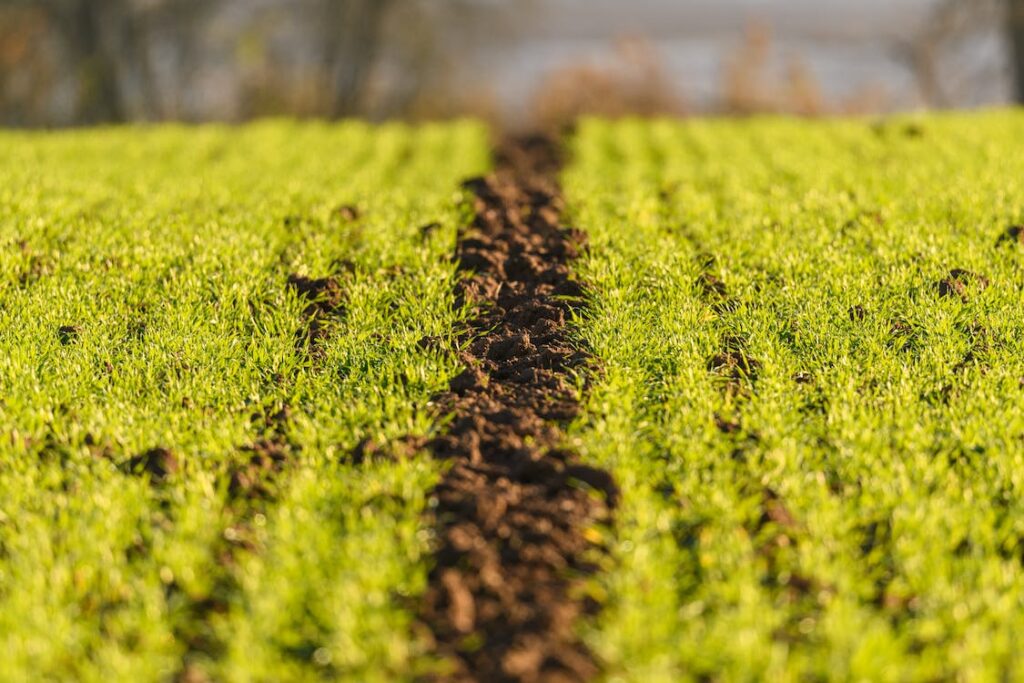In the quest to create a more sustainable and resilient food system, innovators and farmers alike are developing and implementing some of the craziest sustainability trends in agriculture. From vertical farming to precision agriculture, these trends are revolutionizing the way we grow and consume food, ensuring that the agricultural sector is sustainable, eco-friendly, and capable of meeting the food demands of the growing global population.
Key Takeaways:
- Innovative agricultural practices are essential for sustainable food production.
- Vertical farming and precision agriculture are among the revolutionary trends in the sector.
- Sustainable agriculture is crucial for environmental conservation and food security.
Vertical Farming: A Revolutionary Approach
The Rise of Urban Agriculture
Vertical farming is one of the most innovative trends in agriculture, allowing for food production in urban areas where traditional farming is not feasible. It utilizes vertically stacked layers to grow crops, maximizing the use of space and resources.
Benefits and Challenges
- Reduced Land Use: Vertical farming significantly reduces the amount of land needed for food production.
- Resource Efficiency: It utilizes advanced technologies to optimize the use of water, nutrients, and energy.
- Year-round Production: Crops can be grown throughout the year, irrespective of the weather conditions.
However, the high initial investment and energy consumption are among the challenges faced by vertical farming.
Precision Agriculture: Optimizing Farming Practices
Enhancing Productivity through Technology
Precision agriculture involves the use of advanced technologies such as GPS, sensors, and data analytics to optimize field-level management regarding crop farming. It enables farmers to monitor and manage field variability in crops, enhancing efficiency and productivity.
Impact on Sustainability
- Reduced Use of Inputs: Precision agriculture allows for the optimized use of inputs, reducing waste and environmental impact.
- Increased Yield: By optimizing farming practices, precision agriculture enhances crop yield and quality.
- Data-Driven Decisions: Farmers can make informed decisions based on real-time data, improving overall farm management.
Regenerative Agriculture: Healing the Land
A Holistic Approach to Farming
Regenerative agriculture is a conservation and rehabilitation approach to food and farming systems. It focuses on topsoil regeneration, increasing biodiversity, improving the water cycle, and enhancing ecosystem services. It aims to capture carbon in soil and aboveground biomass, reversing current global trends of atmospheric accumulation.
The Role in Climate Change Mitigation
Regenerative agriculture plays a crucial role in mitigating climate change by reducing carbon emissions and promoting carbon sequestration in soils. It enhances soil health, water retention, and biodiversity, contributing to ecological balance and resilience.
Considering the importance and focusing on innovative sustainability trends in agriculture, including vertical farming, precision agriculture, and regenerative agriculture, along with their benefits, challenges, and impacts on sustainability.
Agroforestry: Harmonizing Agriculture with Forestry
Integrating Trees into Agricultural Systems
Agroforestry is a dynamic, ecologically based, natural resources management system that, through the integration of trees on farms and in the agricultural landscape, diversifies and sustains production for increased social, economic, and environmental benefits. It is a cornerstone for sustainability, enhancing biodiversity and ecosystem services.
Multifunctional Landscapes
- Biodiversity Conservation: Agroforestry promotes the conservation of native flora and fauna.
- Soil Health Improvement: The integration of trees improves soil structure and fertility.
- Climate Resilience: Agroforestry systems are more resilient to climate variability and extremes.

Aquaponics: Symbiotic Environment for Plants and Fish
A Closed-Loop System
Aquaponics is a combination of aquaculture (raising fish) and hydroponics (the soil-less growing of plants) that grows fish and plants together in one integrated system. The fish waste provides an organic food source for the plants, and the plants naturally filter the water for the fish.
Sustainable Food Production
- Water Conservation: Aquaponics uses significantly less water compared to traditional farming methods.
- No Chemical Inputs: The system relies on natural symbiosis, eliminating the need for chemical fertilizers and pesticides.
- High Yield: Aquaponics systems are highly productive, providing abundant yield in a limited space.
Permaculture: Designing Sustainable Human Habitats
Ethical Framework for Sustainable Living
Permaculture is a set of design principles centered on whole systems thinking, simulating, or directly utilizing the patterns and resilient features observed in natural ecosystems. It uses patterns observed in nature to create sustainable human habitats and food production systems.
Principles and Ethics
- Care for the Earth: Ensuring the sustainability of natural ecosystems and resources.
- Care for People: Promoting self-reliance and community responsibility.
- Fair Share: Equitable distribution of resources and surplus.
Frequently Asked Questions
Q: How can sustainability trends in agriculture combat climate change?
A: Sustainability trends like regenerative agriculture and agroforestry play a crucial role in mitigating climate change by promoting carbon sequestration, biodiversity conservation, and ecosystem restoration, reducing the overall carbon footprint of the agricultural sector.
Q: Are sustainable agricultural practices economically viable?
A: Yes, sustainable agricultural practices, when implemented effectively, can be economically viable. They can reduce input costs, enhance yield and quality, and mitigate risks associated with climate variability, leading to increased profitability and resilience.
Q: Can vertical farming replace traditional farming?
A: While vertical farming offers numerous benefits, including space efficiency and controlled environment agriculture, it is not likely to completely replace traditional farming due to its high energy consumption and investment costs. However, it can complement traditional farming, especially in urban areas where land availability is limited.
Q: How does precision agriculture enhance farming efficiency?
A: Precision agriculture enhances farming efficiency by allowing farmers to optimize field-level management using advanced technologies like GPS, sensors, and data analytics. It enables precise application of inputs, real-time monitoring of crop conditions, and data-driven decision-making, reducing waste and improving yield and quality.



